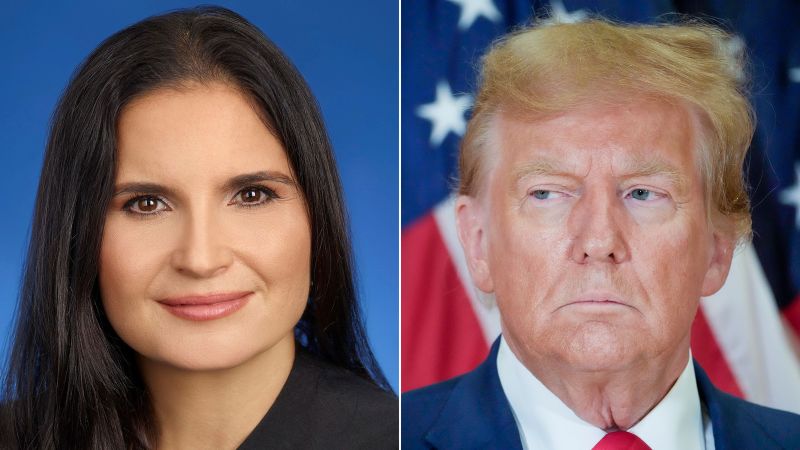Special counsel Jack Smith’s allegations that Donald Trump’s close aides obstructed the Justice Department’s investigation into his alleged mishandling of classified documents at Mar-a-Lago will face their first major test during a hearing Friday.
Judge Aileen Cannon, the judge overseeing the criminal case in a Florida federal court, will examine the validity of the charges against the former president’s two co-defendants, Walt Nauta and Carlos De Oliveira.
Even though Cannon won’t be considering any of Trump’s requests for the case’s dismissal Friday, how she responds to his co-defendant’s arguments about the obstruction charges will likely shape how the presumptive Republican nominee in the 2024 presidential election moves forward with his defense.
As Trump and his allies have argued he is being selectively prosecuted by the Biden administration, Smith and his supporters have argued that former president’s alleged efforts to obstruct the probe into classified documents taken from the Trump White House distinguishes this case from the other times former presidents and vice presidents have been investigated for their handling of sensitive government materials.
Nauta, who works as Trump’s personal valet, and De Oliveira, who has worked as property manager at Mar-a-Lago, are accused of conspiring to help Trump hide documents at the Florida estate after he left the White House and lying to the FBI in interviews about their alleged involvement in moving the documents.
Trump and his two co-defendants have pleaded not guilty to obstruction, and the former president has pleaded not guilty to crimes related to his alleged mishandling of classified and sensitive government information.
In court filings earlier this year, Nauta and De Oliveira asked Cannon to throw out the obstruction charges that they were facing because, they say, Smith hasn’t met his legal burden to pursue the allegations.
Nauta argued that the criminal counts he is facing are too vague. And De Oliveira argued he had “no clue” that classified documents were in the boxes he allegedly helped to move around the club and therefore couldn’t have been intentionally trying to block investigators from attaining important evidence.
De Oliveira also has asked the judge to toss the charges against him for allegedly lying to the FBI about moving boxes during a voluntary interview because, he claims, the criminal probe wasn’t hurt by his alleged lies.
Smith’s team, however, said that De Oliveira’s arguments about the strength of the government’s case should be left for a jury to decide. As for Nauta’s allegation that the charge is too vague, Smith said that the case has included “extensive allegations” of the “criminal conduct that Nauta is alleged to have undertaken.”
In his own interview with the FBI, the transcript of which was released Thursday, Nauta said that the transition out of the White House was “literally chaos” and repeatedly claimed that he believed Trump stored news clippings, hairspray, shampoo, picture frames and other miscellaneous materials in the boxes. Nauta is charged with lying in the interview.
Should Cannon reject their efforts, both co-defendants have asked the judge to order a document called a bill of particulars, in which prosecutors provide detailed descriptions of the offenses they plan to prove at trial.
Smith’s team has called those requests a “thinly veiled attempt to get the Government to disclose its trial strategy.”
Read the full article here
